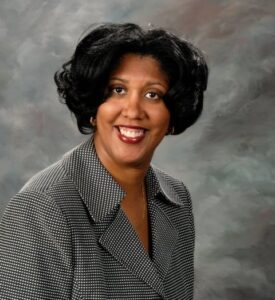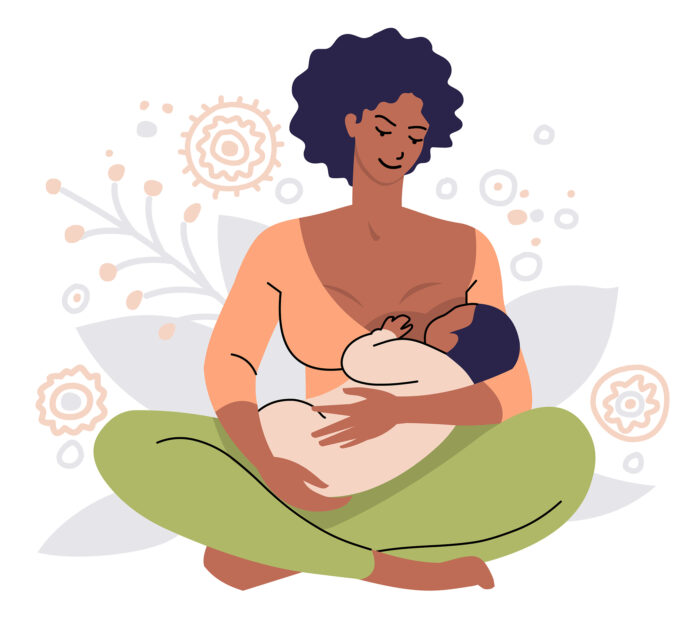By now you’ve heard the numbers: Black moms don’t breastfeed in anywhere near the numbers of women of other races and ethnicities. Right now, though breastfeeding rates in the United States are actually rising, they are still far below the Healthy People 2020 targets of 60 percent at 6 months and 34 percent at 1 year.
In fact, breastfeeding rates among all races stand at 49 percent at 6 months and 27 percent by the time baby is a year old. In 2012, 83 percent of white moms initiated breastfeeding, followed by 82 percent of Hispanic moms. African-American moms came in third place, with only 66 percent of us initiating. By the six-month mark, only 20 percent of us are still giving our babies nature’s first, best food.
Why is this still a problem in 2016, when we know well that breastfeeding provides myriad health benefits to both baby and mom, as well as reducing stress, supporting good mental health and strengthening the bond between mom and child? Why do we continue to ignore the reasons we should be breastfeeding when African Americans bear a large proportion of disease burden, morbidity and mortality, with the highest rates of maternal and infant mortality, all health concerns breastfeeding helps reduce?
Camille Clare, M.D., a New York OB/GYN and an associate professor at New York Medical College, recently sat down to discuss breastfeeding stumbling blocks and what we need to consider as we overcome these obstacles on the path to getting more black moms to breastfeed.
Black Health Matters: Talk to us about the reasons black women don’t breastfeed.
Camille Clare, M.D.: For over 30 years, African Americans have had the lowest breastfeeding rates. The reasons are many. Some include poverty, young moms and less social support. We know that age is one reason. Women younger than 20 are less likely to initiate breastfeeding. Those between 20 and 29 have a 60 percent initiation rate. Older moms initiate at 77 percent.
It’s more complicated than age, though, right?
Dr. Clare: There’s aggressive marketing by formula companies. White women led the charge to formula and black women followed. When white women switched back, led by celebrity cache, black women didn’t buy into it. There’s the role of racism, both internalized, which is a lack of self worth and confidence, and institutionalized, which includes poor hospitals and poor hospital practices. Cultural taboos play a part. For many women, breastfeeding was a topic that couldn’t be addressed in their families. Women were told breastfeeding is nasty. And you don’t talk about boobies, because breasts are seen as sexual. And there’s the enduring legacy of slavery. Older black women wanted to disassociate themselves from the past, from slavery and wet nursing, which gave breastfeeding’s benefits to white masters’ offspring, denying or limiting those advantages to slave infants.
What are some other things we need to consider when we look at the reasons black women don’t breastfeed and try to increase the numbers of those of us who do?
Dr. Clare: On a societal level, current policies affect whether people are successful in terms of breastfeeding. This is insurance, paid-leave policies, cultural attitudes about breasts, societal norms about bottle-feeding. On the community level, there’s a lack of peer support groups, cultural attitudes about formula or breast milk adequacy, the role formula companies and hospitals play. On the organizational level: What are the hospital’s practices? Is it Baby-Friendly? This is also where we take doctors’ influence and authority and workplace barriers into account.
On the interpersonal level, we know there is little or no intergenerational support. We also have to look at the role friends’ lack of knowledge or misinformation plays in whether or not a mom breastfeeds. Plus, general disapproval of nursing in public, a lack of support from partners and fathers, and a lack of discussion by health-care providers. And on the individual level, what are the personal obstacles—pain, discouragement, worry about baby? When there’s a lack of knowledge where can they seek answers and from whom? And again, cultural attitudes about breasts.
Besides increasing the percentages of women breastfeeding at the six-month and 1-year marks, what other goals has Healthy People 2020 set?
Dr. Clare: Employers with onsite lactation support, to reduce the proportion of breastfed newborns who receive formula supplementation in the first two days of life, to increase the percentage of live births occurring in facilities that recommend the Baby-Friendly environment.







